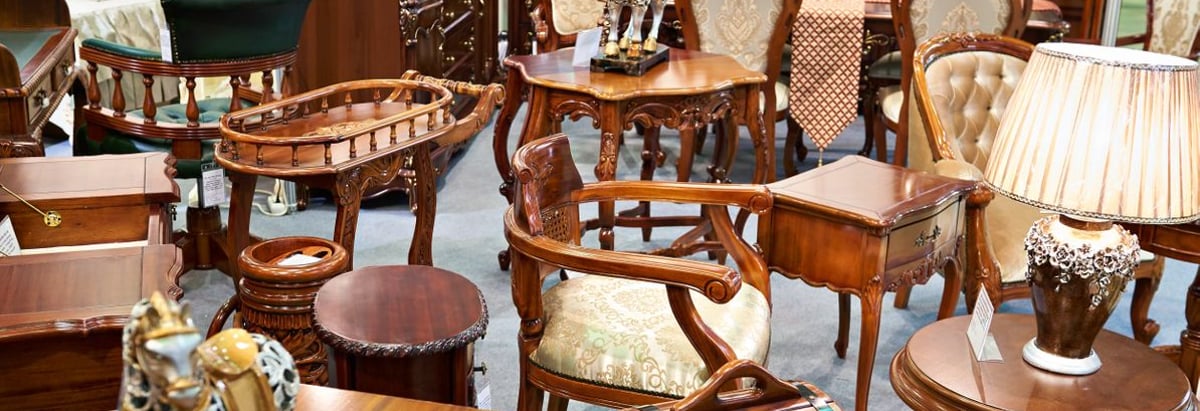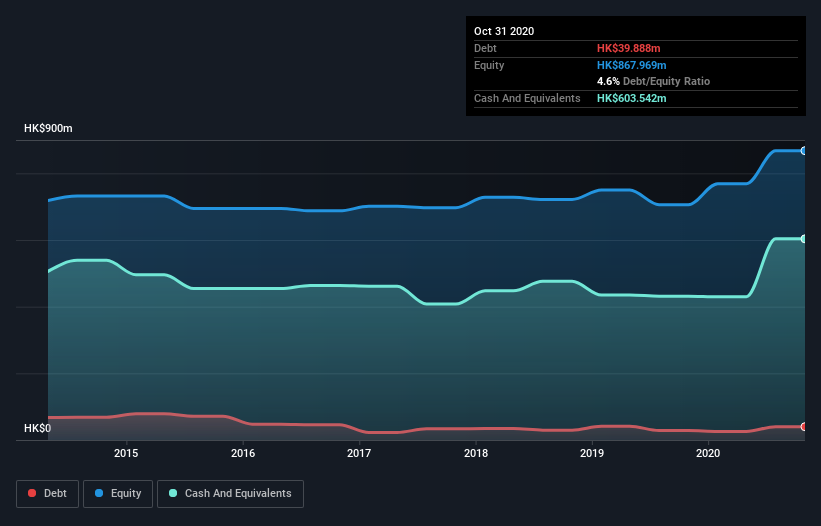- Hong Kong
- /
- Specialty Stores
- /
- SEHK:1373
These 4 Measures Indicate That International Housewares Retail (HKG:1373) Is Using Debt Safely

Legendary fund manager Li Lu (who Charlie Munger backed) once said, 'The biggest investment risk is not the volatility of prices, but whether you will suffer a permanent loss of capital.' When we think about how risky a company is, we always like to look at its use of debt, since debt overload can lead to ruin. We note that International Housewares Retail Company Limited (HKG:1373) does have debt on its balance sheet. But should shareholders be worried about its use of debt?
Why Does Debt Bring Risk?
Debt and other liabilities become risky for a business when it cannot easily fulfill those obligations, either with free cash flow or by raising capital at an attractive price. In the worst case scenario, a company can go bankrupt if it cannot pay its creditors. However, a more usual (but still expensive) situation is where a company must dilute shareholders at a cheap share price simply to get debt under control. By replacing dilution, though, debt can be an extremely good tool for businesses that need capital to invest in growth at high rates of return. When we think about a company's use of debt, we first look at cash and debt together.
Check out our latest analysis for International Housewares Retail
What Is International Housewares Retail's Debt?
As you can see below, at the end of October 2020, International Housewares Retail had HK$39.9m of debt, up from HK$28.4m a year ago. Click the image for more detail. But it also has HK$603.5m in cash to offset that, meaning it has HK$563.7m net cash.

A Look At International Housewares Retail's Liabilities
Zooming in on the latest balance sheet data, we can see that International Housewares Retail had liabilities of HK$648.1m due within 12 months and liabilities of HK$150.1m due beyond that. On the other hand, it had cash of HK$603.5m and HK$6.78m worth of receivables due within a year. So its liabilities outweigh the sum of its cash and (near-term) receivables by HK$187.8m.
Of course, International Housewares Retail has a market capitalization of HK$1.97b, so these liabilities are probably manageable. Having said that, it's clear that we should continue to monitor its balance sheet, lest it change for the worse. Despite its noteworthy liabilities, International Housewares Retail boasts net cash, so it's fair to say it does not have a heavy debt load!
Even more impressive was the fact that International Housewares Retail grew its EBIT by 119% over twelve months. If maintained that growth will make the debt even more manageable in the years ahead. There's no doubt that we learn most about debt from the balance sheet. But you can't view debt in total isolation; since International Housewares Retail will need earnings to service that debt. So if you're keen to discover more about its earnings, it might be worth checking out this graph of its long term earnings trend.
Finally, while the tax-man may adore accounting profits, lenders only accept cold hard cash. International Housewares Retail may have net cash on the balance sheet, but it is still interesting to look at how well the business converts its earnings before interest and tax (EBIT) to free cash flow, because that will influence both its need for, and its capacity to manage debt. Over the last three years, International Housewares Retail actually produced more free cash flow than EBIT. That sort of strong cash generation warms our hearts like a puppy in a bumblebee suit.
Summing up
While it is always sensible to look at a company's total liabilities, it is very reassuring that International Housewares Retail has HK$563.7m in net cash. And it impressed us with free cash flow of HK$614m, being 168% of its EBIT. So is International Housewares Retail's debt a risk? It doesn't seem so to us. The balance sheet is clearly the area to focus on when you are analysing debt. But ultimately, every company can contain risks that exist outside of the balance sheet. For example, we've discovered 1 warning sign for International Housewares Retail that you should be aware of before investing here.
If you're interested in investing in businesses that can grow profits without the burden of debt, then check out this free list of growing businesses that have net cash on the balance sheet.
If you decide to trade International Housewares Retail, use the lowest-cost* platform that is rated #1 Overall by Barron’s, Interactive Brokers. Trade stocks, options, futures, forex, bonds and funds on 135 markets, all from a single integrated account. Promoted
New: AI Stock Screener & Alerts
Our new AI Stock Screener scans the market every day to uncover opportunities.
• Dividend Powerhouses (3%+ Yield)
• Undervalued Small Caps with Insider Buying
• High growth Tech and AI Companies
Or build your own from over 50 metrics.
This article by Simply Wall St is general in nature. It does not constitute a recommendation to buy or sell any stock, and does not take account of your objectives, or your financial situation. We aim to bring you long-term focused analysis driven by fundamental data. Note that our analysis may not factor in the latest price-sensitive company announcements or qualitative material. Simply Wall St has no position in any stocks mentioned.
*Interactive Brokers Rated Lowest Cost Broker by StockBrokers.com Annual Online Review 2020
Have feedback on this article? Concerned about the content? Get in touch with us directly. Alternatively, email editorial-team (at) simplywallst.com.
About SEHK:1373
International Housewares Retail
An investment holding company, engages in the retail sale and trading of housewares products.
Flawless balance sheet, good value and pays a dividend.
Market Insights
Community Narratives



